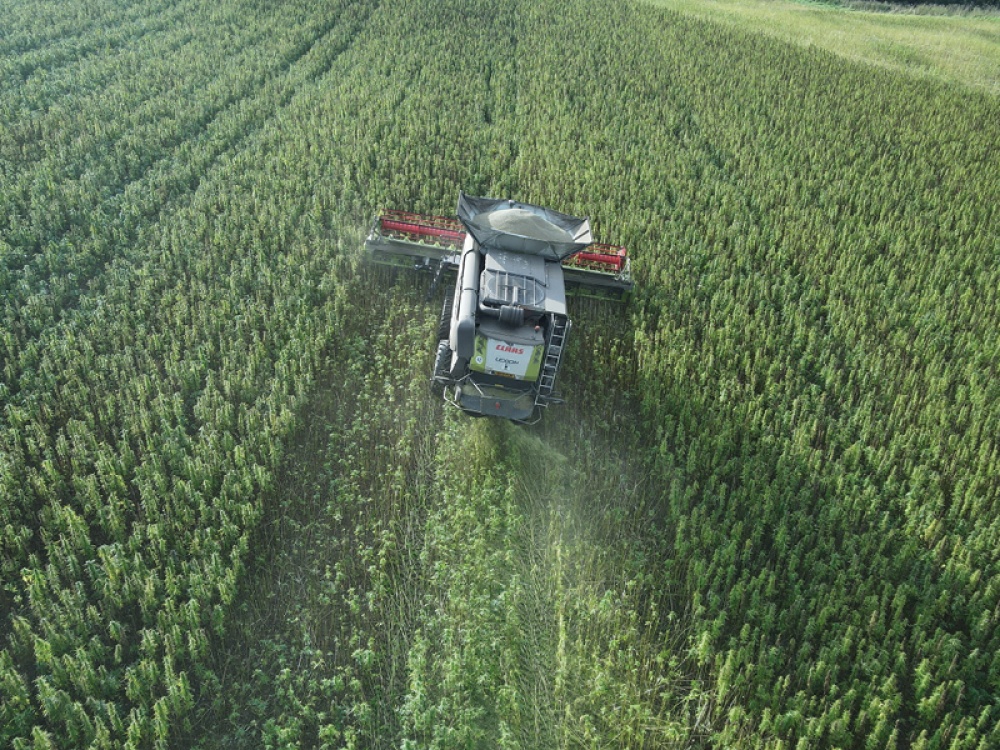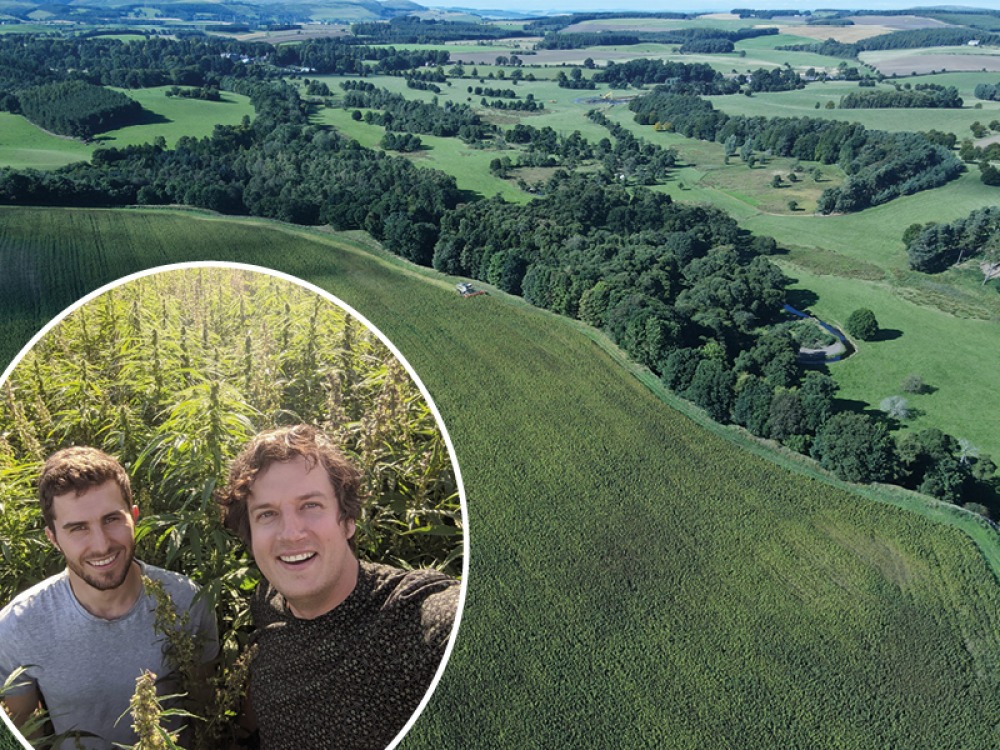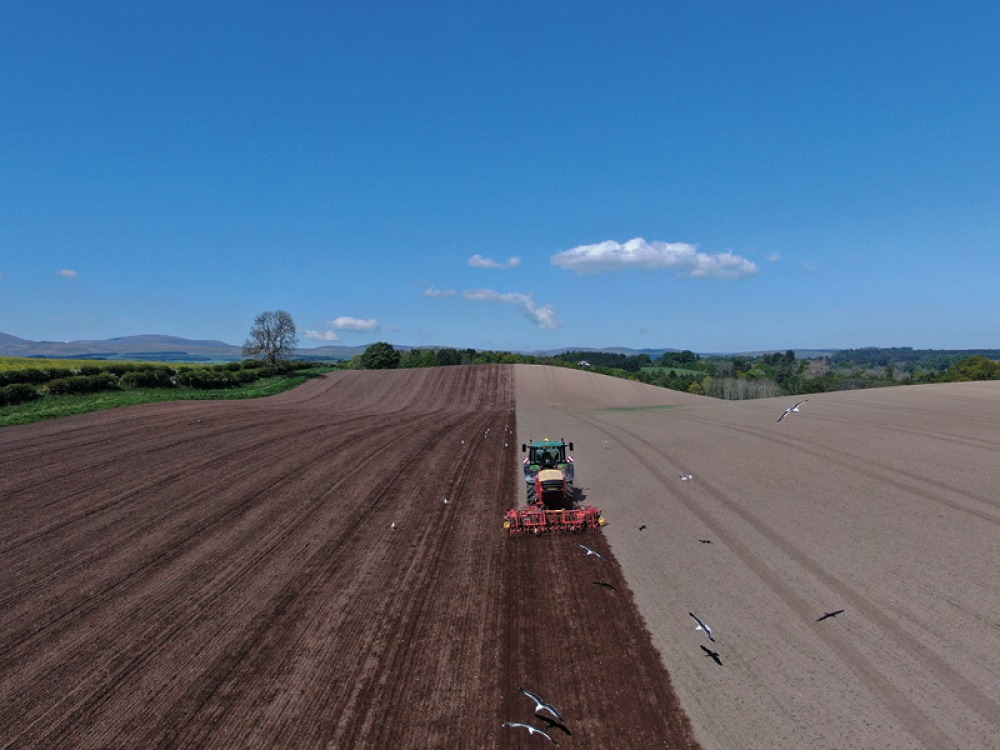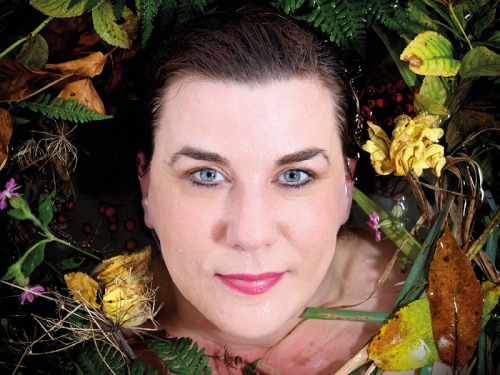Northumberland Farmer and Businessman on the Benefits of Growing Hemp and Why There's a Market for the Crop

We catch up with Hemp North's co-founder, Hugh Wrangham, to find out more
Hemp is the word used to describe the industrial crops for cannabis sativa, grown specifically for its high-quality fibre, industrial use and for highly nutritious seeds. Since 1993 industrial hemp has been legal to cultivate in the UK, but has only been grown on a small scale compared to other parts of Europe, America and China.
Hugh’s interest in hemp was first sparked when he was studying automotive engineering at university. ‘I learned about natural fibre composites and hemp fibre is used a lot, mainly by companies such as BMW, as a sustainable material,’ he says. However, hemp is still a very niche crop in the UK and at the minute there are only a few small farms growing hemp from the seed as a health food – Hemp North being one of them.

Having grown up on a farm near Wooler, Hugh realised he needed to return to his agricultural roots after writing his MSC on the subject of reintroducing industrial hemp in the UK as a broad acre crop. ‘I realised the best way to do it was to grow hemp for the seed. The market, however, is very underdeveloped as it’s such a niche crop in this country, and the vast majority of hemp seeds are imported from China, Canada or Europe. So as a farmer hemp is quite risky to grow as there is no established market to sell it into,’ he explains. He therefore decided to create his own market, setting up Hemp North with his business partner Alistair, who’s experience in marketing and business development helped establish the business. ‘We are now in a place where we have grown the crop (last year) and harvested it, whilst also investing in equipment to prepare and dehull the seeds.’
One of the goals Hugh had was to reintroduce hemp as a break crop for UK farmers and prove it was viable to grow, as well as proving there is a market for it. ‘I worked out that approximately 77 percent of soil we currently farm is suitable for growing industrial hemp and the climate is good too. Down South there is a bit more choice on the variety of hemp they can grow, but there is a variety called Finola bred for Northern latitudes which we grow.’
The team at Hemp North plant the crops mid to late May, which is a lot later than most other crops in the UK – something Hugh believes will give farmers flexibility, allowing them to prepare the soil over the winter. ‘Hemp grows vigorously and outcompetes weeds so there is no need to apply any herbicides such as weedkillers – it gives farmers at least a year where the soil hasn’t got any synthetic pesticides on it, so hemp can really help with soil health,’ explains Hugh. Hemp not only helps the soil but also the environment. ‘It’s been proven that one hectare of hemp sequesters between 10 to 20 tonnes of carbon dioxide, and that’s just in its four-month growing period,’ he says.

As well as all the environmental benefits, hemp also has plenty of health benefits as it’s a food source high in protein, fibre, anti-oxidants and essential fatty acids. ‘The ratio of omega three to omega six is shown to be perfect for human health and it contains lots of other vitamins and minerals, making hemp a superfood,’ Hugh says. Hemp North sell the whole seed after harvesting and cleaning it, but they also dehull the hemp seeds. ‘Hemp seeds have quite a firm outer shell which some find a bit unpleasant, but it’s perfectly edible and actually high in fibre.’ Hugh explains that after extensive research into recipes and sharing many ways to eat hemp on their website, they are always discovering more and more ways hemp can be added to our diets. ‘On Instagram there is a big following of people sharing recipes and it’s usually a lot of baking, so things like muffins, breads and flapjacks, but you can also make smoothies with hemp seeds and a lot of people like it in their salads. I personally have hemp every day on top of cereal or with porridge,’ he continues. Because hemp is classed as a nut it can be broken down and transformed into a milk alternative too. ‘If you blend the dehulled hemp hearts (what we call the seeds) with water they make a really pure, white liquid which looks a lot like milk and it’s creamy too. All you need to add is a little sweetness or flavouring.’
So far, Hugh and Alistair have got their products stocked in a few zero-waste shops around the North East – their goal was always to start local before branching out. ‘Our approach to hemp makes us different and we want to think big,’ Hugh says. Some farms are already growing hemp themselves and many small businesses are selling hemp-derived products online, however for hemp to move from a niche crop to a recognised large-scale break crop they need to raise awareness. ‘Part of our plan is to engage and help other local farmers do what we have done and really start to build an industry around industrial hemp. We want to have the opportunity to scale-up quite quickly and get a lot of hemp growing for all the benefits it provides. We want to grow a lot of it, but we need people to want to eat a lot of it too.’
hempnorth.co.uk







